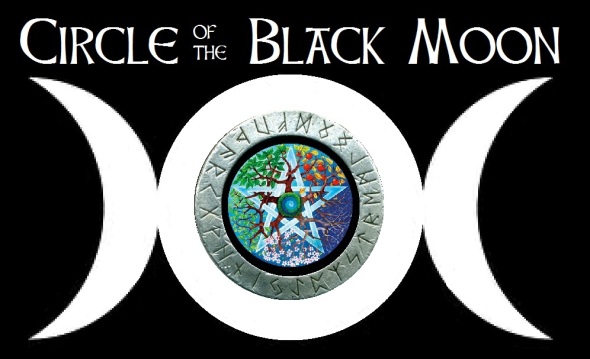Very Superstitious
I just had to post this… <smile> Take a few minutes to appreciate the awesome that is Stevie Wonder.
Moving on…
 I was not raised with superstitions, unless you count being told over and over again that they’re not real, and in fact, may lead to worshipping the Devil. My parents were very religious, and as such, feared the ‘influence’ of believing in superstitions on my soul, as though superstitions were a gateway to more, deeper occult interest.
I was not raised with superstitions, unless you count being told over and over again that they’re not real, and in fact, may lead to worshipping the Devil. My parents were very religious, and as such, feared the ‘influence’ of believing in superstitions on my soul, as though superstitions were a gateway to more, deeper occult interest.
Well, in a way, they were right. Though I never believed in them, the fear of them and the results in honoring such old beliefs interested me greatly. That may very well have been the crack that allowed me to first start questioning their faith and religion.
According to the dictionary, superstition is : an irrational belief arising from ignorance or fear. Superstition is also used to refer to folkloric belief systems, usually as juxtaposed to another religion’s idea of the spiritual world, or as juxtaposed to science. There are superstitions for almost all aspects of our daily lives, if we wish to follow them, however the origins for our most common superstitions are unknown. Sometimes they are logical (for example, don’t walk under a ladder lest you knock it and make the person above you fall, or the person above may drop something on you) but many of the superstitions we follow seem ridiculous (like: don’t open the umbrella in the house). Though many people shrug off the consequences of a broken superstition, some people can become controlled by them, and it can become unhealthy if the belief in superstitious lore gets to the point of interfering with their lives.
It’s possible that belief in superstitions come from the same thing inside that allows us to believe in other supernatural beings and events: the fact that when we can’t logically can’t explain something, we put in fillers (even of sometimes often) that make sense to us; things to explain what we can’t understand. Along with that, anecdotal ‘confirmation’ and rumor can complete the loop from myth to belief, which creates ‘superstition’.
Though I am not ‘fearful’ of the consequence of breaking a superstition, there are some that I do sort-of follow. There are others that, until researching for this post, I hadn’t realized would be classified as ‘superstition’ rather than ‘tradition’.
For example, ‘bad luck comes in threes’. I’ve always felt/followed this one. I’ve experienced this phenomenon many times, and have seen friends go through the same. So at the first sign of trouble, I get prepared. This is called confirmation bias. First, a couple of things go wrong, then something else, then a third (and final thing). After that, things start to look up. Sooner or later, the same thing happens again; trouble in three: people experience one bit of trouble and then start looking for the next bit of bad luck. Then again, and again, and sooner or later, you have a saying… and so on and so-forth.
Another is ‘wish on a star’ and the practice of not telling the wishes lest they fail to come true. This is another that I’ve practiced all my life. I remember as a child sitting in the window sill looking for the first star.
The charm I learned as a child went like this:
Star light, star bright
First star I see tonight,
I wish I may, I wish I might
Have the wish I wish tonight.
‘Wishing on a wishbone’ is yet another dealing with wishes. I never knew where that idea came from, but I learned that there is a legend from first-century Rome that tells of fighting over dried wishbones (which they believed were good luck). The bones would accidentally be broken during the scuffle, which led to the idea that the one with largest piece of broken bone was granted luck (later, their wish). As bird bones have long been used in divination, with the wise-woman, soothsayer, or witch ‘casting the bones’ and reading their patterns to predict the future, it’s a reasonable link to the past that comes from using bones as fortuitous and having powers.
Similarly, ‘wishing while throwing a coin into a well or fountain’, and ‘not telling so the wish will come true’ is similar to the wishing upon a star. As the wishing well is a European motif; the idea that wells were portals to the otherworld, or the faerie world; or that the gods dwelled in them, was common. The practice of entreating them with money or gifts to procure favor with them is old, and it is little wonder that such a practice still exists today.
Other superstitions fall into tradition and etiquette for me. Things like ‘all windows should be opened at the moment of death so that the soul can leave’ and ‘cover the mirrors & pictures of the deceased in the house’ when someone dies seem respectful of the deceased to me, whereas the superstition dictates that these things are done in order to prevent the soul of the deceased from getting ‘trapped’ in them. Either way, it’s just good manners in my mind.
It’s also Jewish tradition, which offers a different take on the practice:
“… covering mirrors in the shiva house, where a week of ritual mourning is held after burial. Lori Palatnik’s article, “The ABCs of Death and Mourning” explains the covering in a number of ways. First, it de-emphasizes personal physicality and vanity, shifting the focus to the soul. Additionally, since physical appearance aids in social acceptance, the covering “symbolizes [a] withdrawal from society’s gaze [as] Jewish mourning is supposed to be lonely, silent; dwelling on one’s personal loss.” The need to attend to physical beauty is further removed since marital relations do not occur during the week of mourning. Finally, sitting shiva involves prayer services which may not occur in front of a mirror to ensure maintaining a focus on God.” Read more: http://www.ehow.com/about_6647451_cover-mirrors-someone-dies_.html#ixzz2XkeIGsm0”
from the post: Sitting Shiva for Traditional Shiva at The World of Pastoral and Spiritual care ~ http://AChaplainsJourney.wordpress.com/2012/01/25/sitting-shiva-for-traditional-shiva/
Interesting, to be sure! I think sitting shiva is a lovely tradition, although I’d quirk it to my personal tastes.
Other traditions/superstitions I’ve been party to center on specific points in a woman’s life:
- penny in the bride’s shoe (did this)
- something old/new/borrowed/blue (yep)
- not seeing groom in dress (meh.. I kinda fudged on that one)
- jumping the broomstick (nope)
- handfasting (literally tying the hands of the bride and groom together) (nope)
- being carried over the threshold (yep)
- to predict the sex of an unborn babe, suspend a wedding band held by a piece of thread over the pregnant woman’s belly (yep)
- during childbirth, put a knife under the bed to cut the pain (yep)

Or her ‘duties’ as Keeper of the Hearth:
- put salt on the doorstep and windowsills of a new house and no evil can enter (and each year) (yep)
- never take a broom along when you move. Throw it out and buy a new one. (yep)
- prevent an unwelcome guest from returning, sweep out the room they stayed in immediately after they leave (yep)
- place an onion (cut in half) under the bed of a sick child to draw off fever and poisons (yep)
Others, like keeping hair cut from your head or fingernail clippings to be burned so that others can’t use them to work magic against you; walking the perimeter of your house and thanking the Guardians of the Boundaries for keeping your property during the year and others toe the line between ‘superstition’ and ‘personal Pagan practice’ for me.
And then some superstitions strike me as nonsense, or fear bred by Christians. For example:
-110045.jpeg) Black cats crossing your path. In ancient Egypt, cats were revered. Both as everyday pets and assets to the economy as rat and snake-killer (protecting the granaries from pests) as they were in Egyptian religious belief. They were the earthly presence on earth as deities (Sekhment, Bastet, Mafdet). As such, their likeness would no doubt cause fear in the ancient Christian heart, giving their followers reason to unfairly avoid them. Over time, this belief transitioned into the superstition that witches and their animal familiars, which were often said to take the form of domestic animals like cats, were embodied by black cats; a belief among some that persists today.
Black cats crossing your path. In ancient Egypt, cats were revered. Both as everyday pets and assets to the economy as rat and snake-killer (protecting the granaries from pests) as they were in Egyptian religious belief. They were the earthly presence on earth as deities (Sekhment, Bastet, Mafdet). As such, their likeness would no doubt cause fear in the ancient Christian heart, giving their followers reason to unfairly avoid them. Over time, this belief transitioned into the superstition that witches and their animal familiars, which were often said to take the form of domestic animals like cats, were embodied by black cats; a belief among some that persists today.
I find black cats especially endearing, even more so considering that black cats are more likely to be overlooked for adoption (and often faster to be euthanized) in shelters. Plus, who can resist Pooka!? While I have no problem with black cats, I still don’t walk under ladders and I do sprinkle some salt over my shoulder if someone spills it, just in case.
Friday the 13th is another that seems to be still a source of fear today. Interestingly, those who suffer a phobia of Friday the 13th are called: friggatriskaidekaphobics, while those who love the 13th are called friggatriskadekarians.

Friday has long been considered an unlucky day (according to Christian tradition); the day on which Eve offered Adam the forbidden fruit and Jesus was crucified) . “If anything bad happens to you on Friday the 13th, the two will be forever associated in your mind,” said Thomas Gilovich, a psychologist at Cornell University. “All those uneventful days in which the 13th fell on a Friday will be ignored.” For a superstition, the fear of Friday the 13th seems fairly new (relatively speaking), dating back to the late 1800s and it still persists today. We see it reflected in our culture in buildings (no 13th floor and often no 13th room), people stay in rather than travel on Friday the 13th (which actually makes it one of the safest days to travel!), doctors avoid scheduling surgeries, and a host of other practices.
Personally, I don’t see what the big deal is. Since 13 is considered a lucky number for many Pagans, I find it rather a lucky day and take full advantage of the pictures on the internet poking fun at the fear. And, many Pagans keep black cats specifically due to the association (well, at first. Then they love them squishy-much).
As far as teaching my children about superstition goes, I haven’t really ‘taught’ them much. They’ve picked up some (like stepping on cracks and wishing in the various forms), but I don’t think they know the meanings/symbolism and history of the act. It’s interesting to see the kids emulate things they’ve seen us do. The only superstitions we subscribe to with the kids (all in good fun, while still telling them the truth of the matter) are related to holidays or High Holy Days (Sabbats). People like the Tooth Fairy, Santa Claus and The Great Pumpkin (we have a really inclusive list of holiday icons), while not literal or ‘real’, are still fun to believe in. Yet still, they’ve picked up things over the years – like salt over the shoulder, and breaking mirrors. I don’t think we’ve passed on anything harmful, but you never know how these things might grow. One I subscribe to rigidly is keeping their closet doors closed and locked on the outside. That’s MY fear, not theirs; but they do close the closet doors always now.
Other superstitions, they have formed for themselves, like a special toy or ‘ritual’ to bring luck. My youngest child had nightmares for a while when he was younger. We offered him strategies, like ‘monster spray’ and ‘bells’ for protection, but he chose a dream pillow stuffed with herbs and a rune/sigil to help him sleep soundly. It worked for him, so that was either a ‘spell’ or ‘superstition’.
“Superstitions give us a sense of certainty,” said Michael Brody, a child psychiatrist and representative of the American Academy of Child and Adolescent Psychiatry.” They also help kids handle anxiety and provide a sense of control”, he added, “and are especially common with 8- to 12-year-olds.”
It’s interesting to me how people get so outraged that superstition abounds, and that there are some who put honest belief into them. I say, ‘to each his own’. Let people find comfort and control in their own way.
For more superstitions and their meanings, check here. I found it rather a ‘tongue in cheek’ site, but interesting, none the less.
How about you – do superstitions play a role in your life? How, and what (if anything), do you teach your child about superstitions? What’s the difference between superstition and tradition for you?
Brightest Blessings,

For another look at the differing beliefs on superstition by Pagans, check out the Circle of the Black Moon’s blog!


















Pingback: Superstitions | circleoftheblackmoon
In my path I’m supposed to spurn superstitions but if I’m honest I think I create my own habitual ones like always walking up a certain set of stairs the same way. I also salute Magpies! If I have children though I will encourage them not to be superstitious.
July 1, 2013 at 10:20 AM